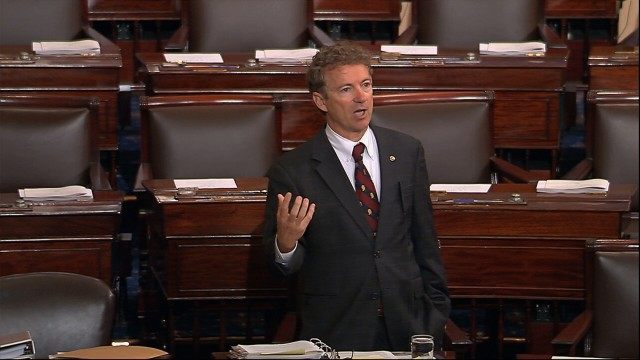For some time now, power has been gravitating from the Legislature to the President. Many in Congress, including myself, have been critical of the President’s executive overreach.
However, Congress bears some of the blame in that this body continues to abdicate and transfer its power to the President. Nowhere is this more obvious than in foreign policy.
If those who decry executive overreach don’t see the problem with today’s sanctions bill, it is due to their own selective application of their principles to domestic policy while ignoring the implications on foreign policy.
Many conservatives readily see the President’s overreach in economic regulation but fail to grasp Presidential overreach when it comes to war. Our founders gave the power to declare war to the Legislature not the President. Yet, this President has had our country involved in two undeclared, unconditional wars in Libya and Syria.
Congress has done nothing.
Yet Congress’ abdication of its constitutional authority and duty to declare war did not begin with a President run amok. It began with Congress partially transferring its power via legislation.
The same can be said about the power to enact sanctions.
During the debate over the Iranian Agreement to end sanctions, many Congressional voices lamented that these sanctions were enacted by Congress and should not be unilaterally ended by the President without Congressional approval.
As many observers noted, Congress has only itself to blame.
For decades now, Congress has granted the President national security waivers to allow the executive to terminate sanctions without any new vote of Congress.
Looking back at the North Korean sanctions, we find President Clinton removing some sanctions by using the national security waiver that Congress provided.
President George W. Bush also relieved sanctions against North Korea by taking advantage of national security waivers.
Jump ahead to the Iran Agreement, and you find President Obama using national security waivers provided by Congress to unilaterally repeal Iranian Sanctions without Congressional authority.
In fact, President Obama has utilized Congressionally-provided loopholes 40 times to remove Iranian sanctions.
Fast forward to the North Korean sanctions before us and the new sanctions bill does exactly what previous sanctions bills have done before: namely, provide the President with power to simply claim any non-specific national security claim to waive the sanctions.
Congressional critics of the President’s use of national security waivers to end Iranian sanctions should decide now that they have no leg to stand on should a future President decide to end North Korean sanctions without Congressional approval.
I propose Congress take back its power. I propose that Congress not cede more power to the President.

COMMENTS
Please let us know if you're having issues with commenting.